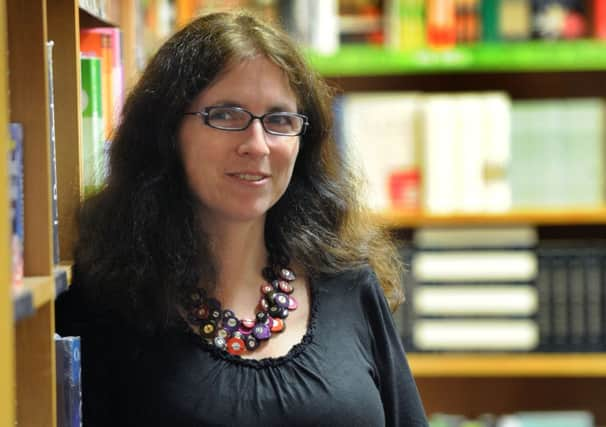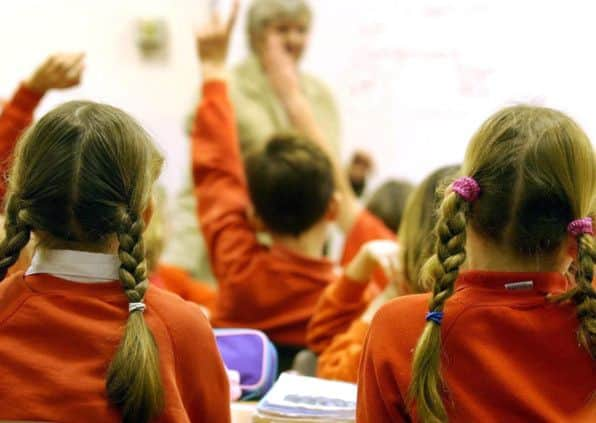Academics make start on addressing ‘taboo’ over impact of genes at school


THERE are few words more loaded in people’s minds than that of “genetics.”
The mere mention of it can cause anger and suspicion in equal measure owing to its association with eugenics and the horrors of ethnic cleansing. Put it in the same breath as “education” and you risk invoking the wrath of parents, teachers and campaigners up and down the land.
Advertisement
Hide AdAdvertisement
Hide AdBut the question of genetics and the role, if any, it has to play in education was thrust back into the spotlight last month when Dominic Cummings, Michael Gove’s special adviser on education, wrote that educationists need to better understand the impact of genetics on children and that up to 70 per cent of a child’s performance is related to his, or her, genes.


It was met with howls of protest in some quarters – Shadow schools Minister Kevin Brennan said his views “sent a chill down the spine” – but it has put the nature versus nurture debate back on the table.
It’s an issue highlighted by Dr Kathryn Asbury, a lecturer in psychology in education at York University, in her new book, G is for Genes – The Impact of Genetics on Education and Achievement, which she has co-written with Robert Plomin, professor of behavioural Genetics at King’s College, London.
The book looks at what’s known as “heritability” – the genetic influence on why some children learn more easily and quickly than others. “One of the messages we really want to get out there is that genes are not deterministic, they’re just one influence on a child and how they develop,” says Dr Asbury.
Advertisement
Hide AdAdvertisement
Hide AdShe points out that the research Mr Gove’s adviser was referring to is nothing new. “We know that genes influence the differences between children. It’s not that 70 per cent of how good you are at maths is determined by your genes, it’s just that 70 per cent of the differences between children are influenced by genes,” she says.
“No child ever learns to read without someone teaching them and giving them books. So the fact that a child learns to read in the first place is entirely driven by their experiences, their nurture. But once you get past the fact that some read really quickly and some really struggle with it, those differences are influenced by their genes.”
The question of genetics in education is still a taboo subject but it’s something Dr Asbury and Prof Plomin felt the need to address. “The actual evidence for genetic influence on learning abilities and disabilities is really uncontroversial in the science community.
“But I think what teachers, parents and the media tend to think is that this is something very scary and is going to be used to be elitist and to discriminate against more vulnerable people.
Advertisement
Hide AdAdvertisement
Hide Ad“But what we try to say in our book is that we’ve got this knowledge, we don’t know if it’s useful but let’s talk about it.”
Rather than simply helping the most gifted children she believes that genetic knowledge can be used to help the most vulnerable in society by targeting what they’re good at.
“In the future genetic technology might be available for us to use DNA to predict strengths and weaknesses and allow us to tailor education and allow those strengths to flourish.
“We’re not there yet but I think we need to talk about it because once we are there people could use that information wrongly and we need to be prepared to regulate it properly.”
Advertisement
Hide AdAdvertisement
Hide AdIn the book they have come up with a skeleton idea of what a genetically-sensitive school might look like which Dr Asbury hopes will kick-start a proper, grown-up debate. “The general idea is that if a teacher has 30 kids sat in front of them then how can they teach each child a different lesson?
“But we think it matters because each child is different and they’re different for biological as well sociological reasons. So finding a way of personalising teaching more than we currently do is a good idea,” she says.
“One of the things we propose is that every child has a home visitor who comes in to see them and meet their family before they ever go to school.
“That way they learn a little bit about who that child is, who their parents are and what their family situation is and that person can be a key worker throughout the child’s education.
Advertisement
Hide AdAdvertisement
Hide Ad“So if something starts to go wrong and a child goes off the rails and starts failing their exams, there’s somebody who has known that child since they were three or four. They can recognise what might be going on and how to help because often at secondary school there isn’t anyone who really knows each child.”
Dr Asbury, herself a mother of five, feels the existing education system doesn’t work for everyone. “I think one of the worst things about education today is that someone has an idea and snaps their fingers and all of a sudden we have a school, or a policy, and there’s no evidence to support its effectiveness.
“We shouldn’t be in the position where we have to treat children as square pegs that you put into round holes, where all the emphasis is on getting five A star to C grade GCSEs and we don’t develop the fact that football is their thing, or mechanics, or cookery.
“It’s not allowing kids to shine at what they love and what they’re good at, or giving kids the opportunity to find out what they love and what they’re good at.”
Advertisement
Hide AdAdvertisement
Hide AdBut is a school like the one she and Prof Plomin have outlined actually feasible? “At the moment we’re seeing a period of great change with the Free School model and people trying out different ways of doing things. Our idea needs a lot more discussion and fleshing out and then it needs testing to see if what we’re saying actually works and actually benefits children.”
There’s also the small matter of convincing a sceptical public. Dr Asbury, who recently withstood a grilling on the BBC’s combative Moral Maze programme on this whole issue, is well aware of many people’s mistrust of anything associated to genetics, especially when it comes to children.
“We’ve got a language problem and we’ve got a PR problem. If you hear some people talking about it you hear words like ‘Nazi’ and ‘eugenics’, these are very scary words and they get bandied around a lot. That’s why we’re trying to get the message out that heritability isn’t scary and it’s not what you might think it is, and that just because genetics has been used for bad purposes in the past it doesn’t always have to be.
“If you look at law, or medicine and the environment it’s been used to very good effect. But in education people are still very frightened of it and I understand that because we’re talking about children and everyone cares about their children more than they care about anything else.”
Advertisement
Hide AdAdvertisement
Hide AdNevertheless, she believes in the science that underpins their argument. “We’re talking about designing education along scientific principles so I think it’s really important to stay true to science and test everything scientifically. This might take a long time; it’s not something one Government could do in one term. But if we could build on this the principles underlying it are sound.
“I just think education policy is better made with knowledge than without it and we’ve got this knowledge and we’re trying to communicate it as clearly and as unthreateningly as we can, so that people with more experience of education than us can talk about whether it can make things better.”
And she believes genetics can have a positive role to play. “I would like to see it used to make education better for the kids it isn’t currently working for, so that it helps the least advantaged kids in terms of ability and background.
“We want to take the taboo away so that you can put the two words ‘genetics’ and ‘education’ in the same sentence without people going nuts, which is what typically happens.”
Advertisement
Hide AdAdvertisement
Hide AdDr Asbury believes the ideas she and Prof Plomin have laid out can help give all children a chance, not only the brightest. “If you have all the facilities available at school and they’re subsidised so you have a level playing field, then those more vulnerable children have a much better chance of finding their natural talents.
“So that when they leave school even if they don’t have loads of GCSEs or A-levels, they hopefully have a clearer sense of who they are and who they want to be and they have the tools to go out and do that, because I think at the moment we just engender feelings of failure in these kids and that’s an awful way to start your adult life.
“I think a good school gets all children to a good basic skills level so they can function in society, they’re literate, they’re numerate and they can handle computers.
“But on top of that we should be trying to find what every child is good at, we should find their talent and nurture it. So if it turns out that the child growing up in Harehills in Leeds is into sailing then it’s made possible and school makes it possible.”
Advertisement
Hide AdAdvertisement
Hide AdG is for Genes – The Impact of Genetics on Education and Achievement, published by Wiley Blackwell, is out on November 21, priced at £16.99.
The G word that causes shivers
“The g word has been a taboo in education,” says Stephen Pinker, of Harvard University. “This defies both science and common sense, which tells us that children are not indistinguishable blank slates.
“Kathryn Asbury and Robert Plomin show that an understanding of genes, far from being scary, is indispensable to sound educational policy, promising schools that are both effective and more humane.”
Kathryn Asbury is a lecturer in the Centre for Psychology in Education at the University of York, and has written widely about children’s behaviour.
Robert Plomin is professor of behavioural genetics at King’s College, London and has written more than a dozen books on the subject.